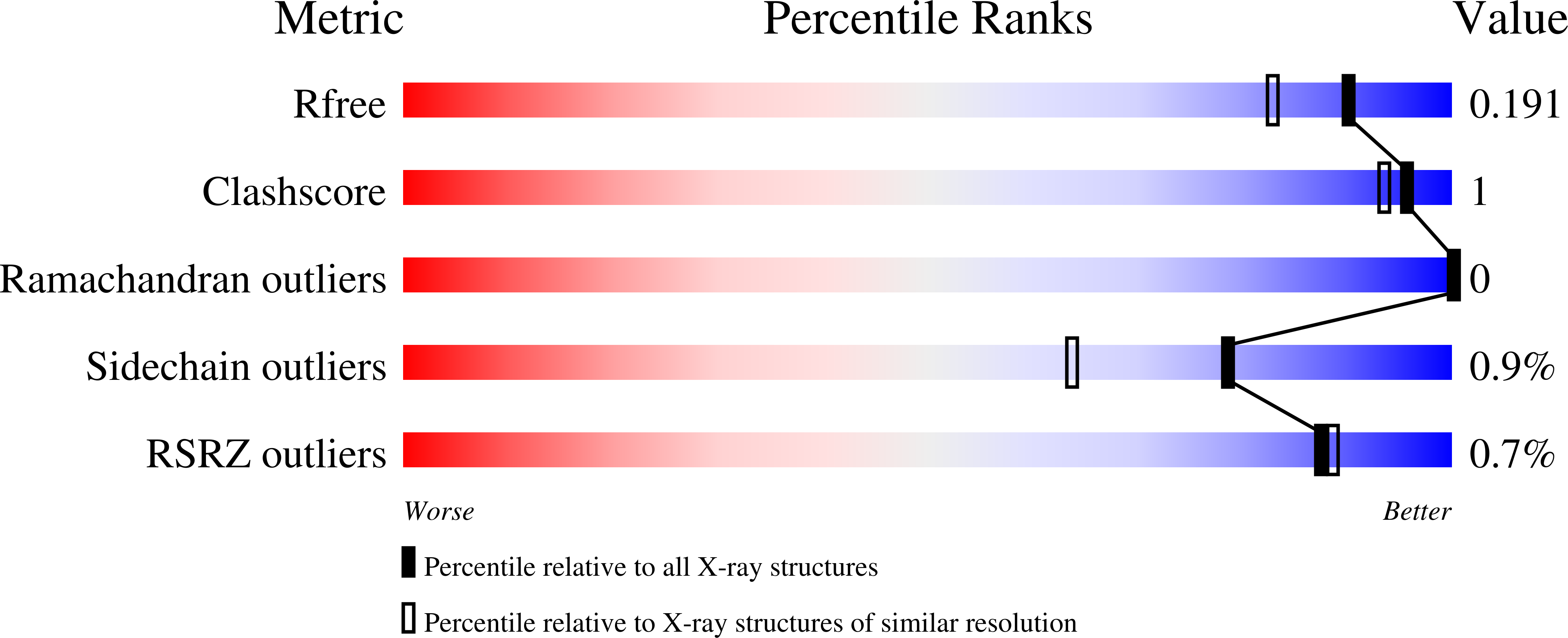
Deposition Date
2022-09-16
Release Date
2023-02-15
Last Version Date
2024-05-22
Entry Detail
PDB ID:
8EJB
Keywords:
Title:
Bruton's tyrosine kinase in complex with 3-{[4-(1-acetylpiperidin-4-yl)phenyl]amino}-5-[(3R)-3-(3-methyl-2-oxoimidazolidin-1-yl)piperidin-1-yl]pyrazine-2-carboxamide
Biological Source:
Source Organism(s):
Homo sapiens (Taxon ID: 9606)
Expression System(s):
Method Details:
Experimental Method:
Resolution:
1.58 Å
R-Value Free:
0.19
R-Value Work:
0.16
R-Value Observed:
0.16
Space Group:
P 21 21 21


